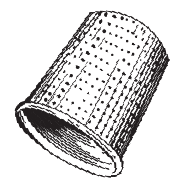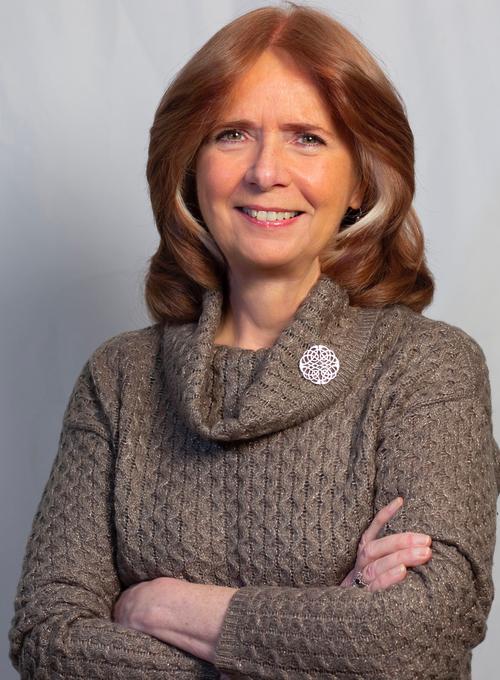To see the words on the blackboard, I’d use a pencil to pierce a hole through a piece of paper. Somehow, when I looked through the hole, the words came into focus. I had no idea why, still don’t. I was ten years old, and my teacher finally sent me home with a note informing my mother.
I didn’t want to tell Mama why I was squinting so much. My father had lost his sight almost entirely by then, and I was scared that what had happened to him was happening to me. He went blind gradually, the reason a mystery. Mama would mumble something about an accident at the gas station where he used to work and his neglecting to do his eyedrops. The story didn’t seem true, even then. Decades later I learned the cause had been something far worse, syphilis, and all eight of us—my mom and all the kids—had to get shots. For years, the disease was a secret my older sisters and brothers only hinted at, one more of the many family riddles that were never explained and off limits to question. But I have no memory of going for shots, and I worried that I’d been overlooked, the way I’d been overlooked for so many things, basic things, like the eyeglasses, vaccinations. All my siblings had a whitish scar near their shoulder, where they’d been vaccinated for smallpox. My arm has no mark.
Other pieces of my life were just as mysterious, like the circumstances surrounding my starting school. The September after I turned six, I was supposed to enter first grade at St. Thomas Aquinas, just as my five older siblings had. My gray dress, with tiny polka dots and a pink sash, hung on the door the night before. I couldn’t wait to wear it. But I never went to school the next day. When I asked Mama why, she tossed out something about the school not having a kindergarten. That was horseshit and I knew it even then. I never did get a straight answer.
I didn’t start school until the following year, when I was seven. So I went through first grade and every grade after that explaining to kids why I was older than they were, insisting I wasn’t left back. I was grateful I didn’t look my age. Unless the subject of birthdays came up, most kids never guessed.
It took two years before I was able to figure out why she didn’t send me to school. I was eight by then, and Daddy worked at the Light House for the Blind in Queens, navigated the subway on his own. He rarely used his red-tipped cane in the house, but in the street, he’d tap an arch in front of him, like an undecided pendulum, to make his way. He’d want me to hold his hand crossing the street. I hated that. I wasn’t a little kid anymore, and his skin against mine felt foreign. But he’d reach out his catcher’s mitt of a hand, and I’d take it because I had no choice. It wasn’t safe to make him angry. He could find you later if he wanted to.
Like he found my little brother, Kevin, the day we were rehearsing. My sister Irene and I liked to put on shows for Mama, pull her out of her moods. So we learned old songs from Judy Garland movies, the kind she liked. A thin, faded blanket hung across the corner of the room, tucked into the tops of the windows on each side, creating a triangle of secret space backstage. Drenched in our sister’s perfume, Irene danced in Mama’s high-heeled shoes before the curtain—a long, slim umbrella, her cane. I directed the lamp with the shade, keeping her within the spotlight. Kevin stood in the doorway, laughing, inattentive at his post as lookout. He didn’t see Daddy coming.
His entrance was sudden, insulting. Irene and I scurried to another corner of the room, but Kevin was in his way. The anger was grotesque: blind eyes wide open, impotently searching, lips spread in a frightening semblance of a smile, the shimmering tip of his tongue protruding between his teeth. I didn’t wonder where the anger came from. Our existence was violation enough. He reached down for Kevin, picked him up by the back of his shirt and smashed his face. He bled but didn’t cry out; only a pathetic whimper came, a useless defense. The room filled with the smell of his urine.
Daddy let go of him, still cursing, spitting out threats. “Outta my way, you bastard. I’ll break your legs.” He staggered toward the stage, his arms slicing at emptiness, his huge bulk entering the abandoned spotlight. Then the curtain brushed his shoulder and he tore it down, kicked aside our props and toys until the magical space was once again the dismal corner of the bedroom. That’s when Kevin screamed. It was a foolish thing to do, because Daddy’s rage was only half-spent and he turned toward the sound of the crying.
I was tiny. I couldn’t have stopped him from hurting Kevin, or Mama. And for the first time I wondered if that was why she’d kept me home with her when I was six. She wasn’t working yet. Except for Kevin, she’d have been alone with Daddy when he took sick days for hangovers or when he came home unexpectedly in the early afternoons. So maybe my being there protected her. Maybe I made a difference. Maybe it wasn’t so mysterious after all.
A few weeks after my teacher sent that note home, I walked into the street sign on the corner near our new apartment, and Mama finally decided I needed glasses. I needed them months and months before that, but I knew we had no money for glasses. She was saving every cent for the new apartment, so I didn’t mention it. Plus she had her hands full getting us ready to move. Everybody was happy to be moving out of the basement apartment, excited about the new place. It was on the second floor of a two-family house and had a big kitchen and a big living room, with a porch that overlooked a courtyard.
It wasn’t hard to keep Mama from figuring out I couldn’t see straight. I’d lost interest in television because the figures all seemed like fuzzy ghosts. All I could do without difficulty was read, and I was already the family egghead, so no one gave it a thought. The day my face met the pole, my brother Kevin made it sound like I’d spun around the thing like Wile E. Coyote. Not true. The collision hardly left a mark.
I hated the way I looked in glasses, like a mouse in goggles, but at least I didn’t have to pretend I had a sore ankle when it was time to play kickball in gym class. And I had one less secret to keep.


